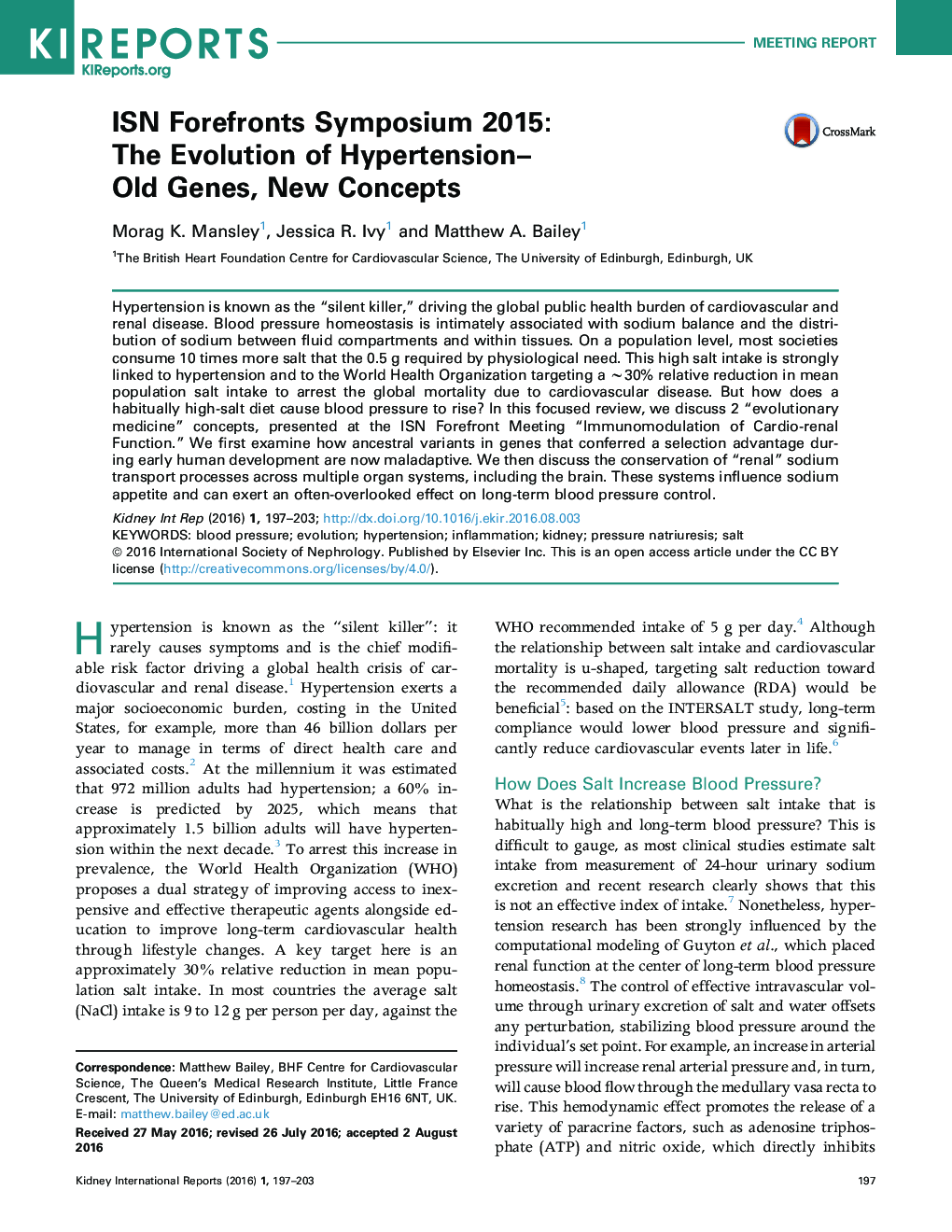| Article ID | Journal | Published Year | Pages | File Type |
|---|---|---|---|---|
| 3891263 | Kidney International Reports | 2016 | 7 Pages |
Hypertension is known as the “silent killer,” driving the global public health burden of cardiovascular and renal disease. Blood pressure homeostasis is intimately associated with sodium balance and the distribution of sodium between fluid compartments and within tissues. On a population level, most societies consume 10 times more salt that the 0.5 g required by physiological need. This high salt intake is strongly linked to hypertension and to the World Health Organization targeting a ∼30% relative reduction in mean population salt intake to arrest the global mortality due to cardiovascular disease. But how does a habitually high-salt diet cause blood pressure to rise? In this focused review, we discuss 2 “evolutionary medicine” concepts, presented at the ISN Forefront Meeting “Immunomodulation of Cardio-renal Function.” We first examine how ancestral variants in genes that conferred a selection advantage during early human development are now maladaptive. We then discuss the conservation of “renal” sodium transport processes across multiple organ systems, including the brain. These systems influence sodium appetite and can exert an often-overlooked effect on long-term blood pressure control.
